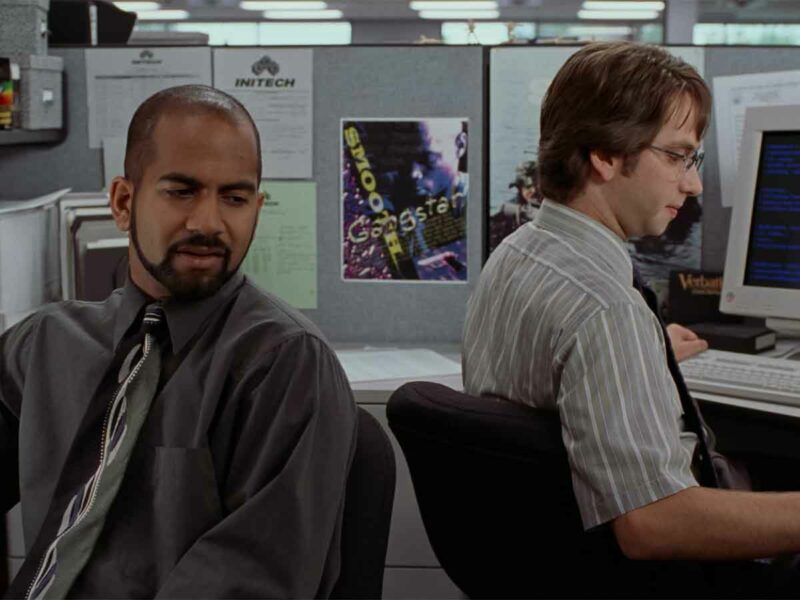Walk it Back
When civilization arrives, it brings assumptions, and these take the form of precedent cascades. One big assumption leads to others based on it, moving from the general to the particular. This enables society to control its population directly by demanding that certain methods be followed to be consistent with the founding assumptions.
However, these systems have a weakness as well: if people notice that the particular methods are not working so well, they might walk it back up the chain of the cascade and find out that the initial assumption as well is not realistic, not good, or both.
“There is an unwritten rule in Soviet publications, both military and civilian, that you can criticize but not generalize. What that means is that individual screwups can be identified and castigated at length, but for political reasons it is unacceptable to make general criticisms applying to a whole institution. You see, a critique that pointed to an all-pervasive condition would ipso facto critique Soviet society as a whole, and thereby the Communist Party, which oversees every aspect of Soviet life. It is a thin, but to them a philosophically important, distinction. In fact, when individual malefactors are named, the system as a whole is being criticized, but in a politically acceptable way.” – Red Storm Rising (73)
Now you can see why racism, anti-Semitism, and other forms of proxy warfare are so dangerous: they avoid getting you started walking up the cascade. If you criticize an instance of an ideology, your criticism will eventually walk itself back to the root idea, like egalitarianism in our current time.
Consider your average internet racist. He feels that his problems or those of his society are caused by Blacks, therefore in his mind, if we remove Blacks, the problem goes away. Instead, he has made the problem worse and made his doom inevitable:
- Great Replacement: He does not challenge the idea of racial equality itself, therefore keeps some kind of diversity in play, which means that the three billion Asians and Hispanics waiting to replace him will take the role the Blacks previously had. They may not be as dangerous as he perceives Blacks to be because they are more dangerous: less violent but more prosperous, they will simply breed him out of existence.
- White Equality: by not overthrowing the idea of equality itself, he condemns his own people to spend the rest of their miserable existence on infighting over whether we have enough equality. This will remove his most talented people and leave behind weakling idiots who will quickly be conquered.
- Negative Outlook: he remains focused on scapegoats instead of doing what he can to build back his people, which means ensuring that we breed more and better people instead of destroying those in the name of equality. When his scapegoat is gone, problems will remain because he never took a positive direction.
- Dysgenics: once the assumption becomes that Black people are the problem, a “White is Right” mentality takes over which fails to take into account the differences in quality between White peoples and White individuals. In particular, he will embrace hwites, then genocide his population with trace admixture. Even worse, he will cause the least competent Whites and hwites to breed like bunnies, producing a lower-quality population.
Instead imagine that the average internet racist notices one day that affirmative action has promoted an idiot in his local DMV. He could start using ethnic slurs and blame it on The Jews,™ but suppose that instead he asks how this person got into this position in the first place.
He tracks it back to affirmative action, then to the civil rights acts which are its basis, then to the 14A which is its Constitutional support, and from that to the idea itself from the French Revolution era of absolute civil rights which took over in America after the Napoleonic Wars.
He might even look to the support for these ideas which have consistently come from hwites like the Irish who were early supporters of changing immigration acts from limiting intake to Western Europeans to letting in just about anyone who came here with a sob story and a potato.
At that point, he starts wondering whether equality itself was ever intended in America beyond the simple notion that a rich man could not buy his way out of a trial that a poor man must endure, and whether the idea of equality itself is good or not. He has now gotten to the core.
In an esoteric sense, he can go further and look into the psychology of equality. Who needs equality? Those who want to avoid being known for who they are, and therefore having a place in the hierarchy that is not king of the ash-heap beholden to no one but owning nothing of note in particular.
The Rich do not need equality; they already have something better. The strong do not need equality; they make their own luck, like the intelligent. The good do not need equality; they want to promote goodness, which requires sorting out the good and bad in a hierarchy. But the neurotic, insane, criminal, underconfident, and perverse? They need it.
When you start walking back to the core, our problems now stand revealed as effects and not causes. No shadowy Jew did this to you; you did it to yourselves, by selecting equality. Ranting about The Blacks™ instead of pointing the finger at the Big Lie of equality just continues our problems in a more malevolent form.










